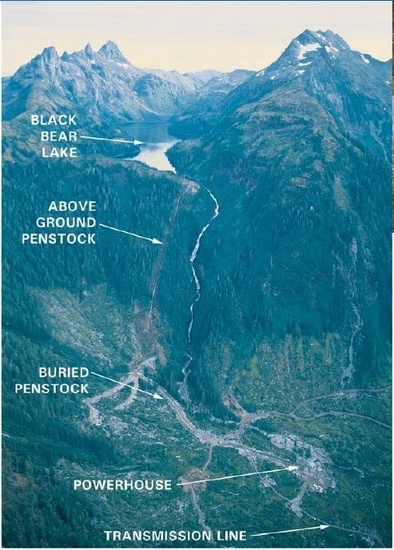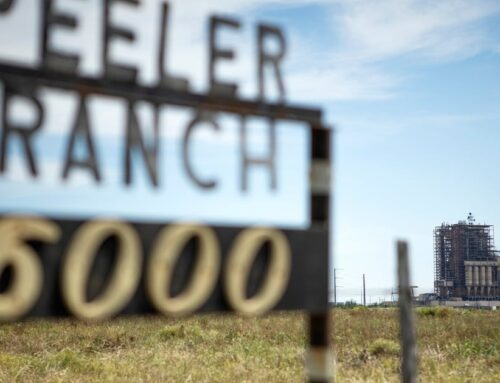A Prince of Wales hydro facility is getting an upgrade to provide more cheap, renewable power
December 20, 2024

A new round of federal grant funding will go toward upgrading an aging hydroelectric plant on Prince of Wales Island, providing more, cheap power for residents. The $112,291 grant from the U.S. Department of Agriculture (USDA), announced Dec. 11, will be used to refurbish the Black Bear Lake hydro facility so it can generate more electricity.
Jason Custer is vice president of Alaska Power and Telephone (AP&T), the regional power provider that owns the hydro plant. He said the funds will be used to upgrade equipment at the oldest of the island’s three hydropower projects, which also provides the cheapest energy.
“Generally, that’s the project that AP&T dispatches first to provide for the electrical needs of residents there,” Custer said. “So if we can do upgrades to the powerhouse affordably, we can get more of that affordable energy out of the project.”
The upgrades are expected to increase the facility’s electric generation by 12.5% or 673,000 kilowatt hours per year — equivalent to the demand of about 93 homes.
Prince of Wales already runs almost entirely on hydropower and fills in the gaps with diesel generation. But the more power the hydro facilities produce, the less frequently the utility has to draw on the more expensive, climate warming fuel. Custer said the upgrades will also help prepare for increased demand as residents switch over to electric-powered home heating.
“There’ll be more renewable energy, and we’ll be setting the stage for growth as more people install heat pumps,” Custer said.
Two new programs are funding heat pump installations on Prince of Wales, helping residents save money on imported heating fuel. Juneau-based Spruce Root has a $2.5 million grant directed specifically at Prince of Wales, and another $38.6 million grant will fund installations throughout Southeast Alaska.
The more residents can use the island’s abundant renewable energy, which often produces excess power, the more the utility is able to lower rates.
Custer also said that it’s difficult for AP&T to take advantage of grant programs like this, because of the taxes the grants have been subject to since the Tax Cuts and Jobs Act of 2017.
“We make the investments that we need to make as a utility company, as long as they’re economic and they’re not going to create issues for the rate payers,” Custer said. “But there’s some things that we simply cannot do without grant funds. If we’re applying for grant money to do something, it’s because we really need the help of the grant.”
Custer hopes that if Congress takes up tax reform next year, they consider resetting things so that infrastructure grants are no longer taxed.
Michael Fanelli is the News Director at KRBD. He can be reached at michael@krbd.org.
Search
RECENT PRESS RELEASES
Related Post



